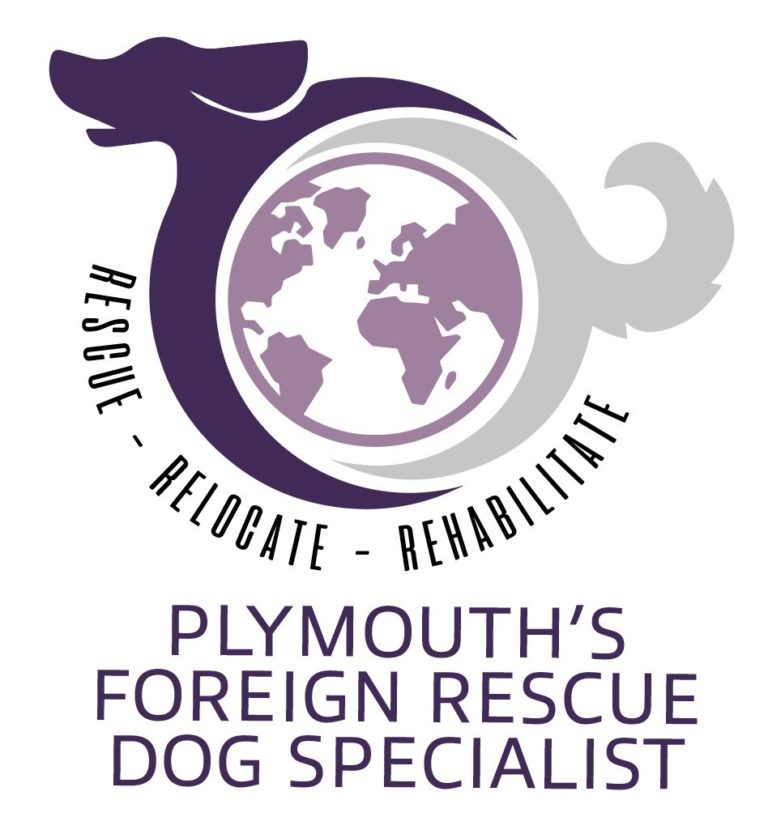
With the big increase in dogs being imported from foreign countries many owners or potential owners are not aware of the downsides of choosing to adopt dogs from abroad. It is so easy to come across a picture on facebook and your heart melt, of course you want to offer your home to this beautiful dog who deserves the best life that he or she could have and you know that you can give them that. But is adopting dogs from abroad really the right thing to do?
The Truth
As a behaviourist who has spent many years helping families who have adopted rescue dogs from abroad I have lost count the amount of dogs that have really not benefited from being brought into our country and most certainly not into a family home.
As heartbreaking as it is for these families and although their intentions have come from a good place they have sadly not been educated enough when it comes to the reality of adopting a dog from abroad.
You just do not know what dog you are going to get. They could be puppies but these puppies have genetics which maps out who they are. Their ancestors are in their DNA. Just because you are adopting a puppy doesn’t mean they are a clean slate when they arrive to you. Some dogs may have come from the streets where they were living amongst people which gives you a slight advantage but others could be feral dogs that have been caught in terrifying ways which has traumatised them. They may not of had any human contact before this or if they have it could have been all bad experiences.
Sadly just offering them a home and love is not enough. I can honestly put my hand on my heart and say that some would have been better off being released back to their natural homes.
Many have not even seen inside a home or even a car before they are captured. This is why so many struggle with travelling in vehicles and settling in a family home.
I see a lot struggle with the same behaviours such as fear of strangers, reactivity towards other dogs, anxiety that makes just walking out the front door traumatising. Many wont allow collars or harnesses to be put on them. Neck sensitivity is a thing due to when they are caught off the street. The list is endless.
I have spoken with desperate families who all have said the same thing. If they had known they would not have adopted a dog from abroad.
Now i know some of you are going to be reading this and thinking, well my dog is absolutely fine, my dog is great around people and dogs. We go on walks everyday and they travel really well in the car. It is just like living with a British dog. This is amazing and you are very lucky. You may have chosen to adopt from a great rescue, you may have also adopted a dog that has been lucky to be exposed to people a lot, they may also have been in foster in the UK already before you adopted them. And some are just robust enough to adapt pretty quickly.
So you still want to adopt but want to make sure you get things right?
Ok so you want to adopt still but also want to know how to do it properly. The sad reality is the rescue industry is not regulated which means some rescues are not offering everything that they can to make sure these dogs are safe, healthy and are capable of living in a home environment. They are not being adopted out to the right sort of home. They also may not have had all the health checks and vaccinations that they need. There is currently no legal requirement to test for any diseases before they are brought over. They are only required to vaccinate against rabies and worm them.
Doing your research before you choose which rescue to adopt from is really important.
Here are a list of things I would recommend that you ask the rescue you want to adopt from:
Do they carry out tests for diseases such as Brucellosis?
Brucellosis is a bacterial infection that can be transmitted from animals to humans.
In dogs, brucellosis can cause reproductive problems and can be transmitted through breeding, saliva, and urine. Although it is rare for humans to get brucellosis from dogs, it is still a possibility, especially if the dog has come from an area where the disease is common.
Others are:
- Leishmaniasis: A parasitic disease transmitted by sand flies that can affect dogs and humans. It causes skin lesions, fever, and can damage internal organs.
- Ehrlichiosis: A bacterial infection transmitted by ticks that causes fever, anemia, and bleeding disorders in dogs.
- Babesiosis: A parasitic infection transmitted by ticks that causes anaemia and fever in dogs.
A good rescue will have carried out these tests.
Ask what checks they carry out.
Reputation, Transparancy & Evaluation
Do your research and find a rescue that has a good reputation in the area for providing care to rescue dogs. The rescue should be transparent with you about the dog’s history, including any known behavioral issues, medical conditions or past injuries.
The rescue should perform a comprehensive evaluation of the dogs to ensure that they are healthy and safe. This may include a medical checkup, behavioral assessment, and evaluation of any past traumas.
Support:
Ensure that the rescue provides support throughout the adoption process and after you bring your new pet home. Ongoing behavioural support is really important so make sure they have a qualified behaviourist working alongside them that is force free and is experienced with working with foreign rescue dogs.
Policies & Adoption Fees:
Check if the rescue follows appropriate policies such as spaying/neutering, microchipping, and vaccinations before adoption.
Understand the adoption fee and what is included, such as spaying/neutering and vaccinations.
Communication:
The rescue should be communicating with you throughout the entire process and offering to answer any questions about your new pet. Do not be afraid to ask questions.
References:
Ask for references from people who have adopted pets from the rescue. Experiences from other people will really help you understand the rescue you are adopting from. There are many facebook groups specifically for foreign rescue dogs. You can retain a lot of feedback from them.
Compatibility:
Ensure that you and your potential pet are a good match. Find out what breeds are in your dog and research them. I see many hunting and guarding breeds which means you need to be prepared for behaviours they may show. Think about your family lifestyle and could you really bring a dog into your family that could potentially be traumatised. If a rescue uses UK based home fosters this would be the best places to adopt from as you will know how they have adapted to living in a home. Some rescues require you to pick the dog up from the van they have just be brought over in. Can you be prepared to deal with a dog that hasn’t experienced our way of living. Many fosters in other countries tend to keep the dogs outside or in compounds with lots of other dogs.
Legal Documents:
Ensure that the rescue has legal paperwork and contracts in place to protect both parties involved. Each rescue will have their own policies and procedures, make sure you know what they are.
Adopting a foreign rescue dog can be a wonderful thing and very rewarding, however be sure to carry out the research before to make sure that you are a right match. These dogs would have been through a lot in their lives so they depend on us getting things right and being there for them.

